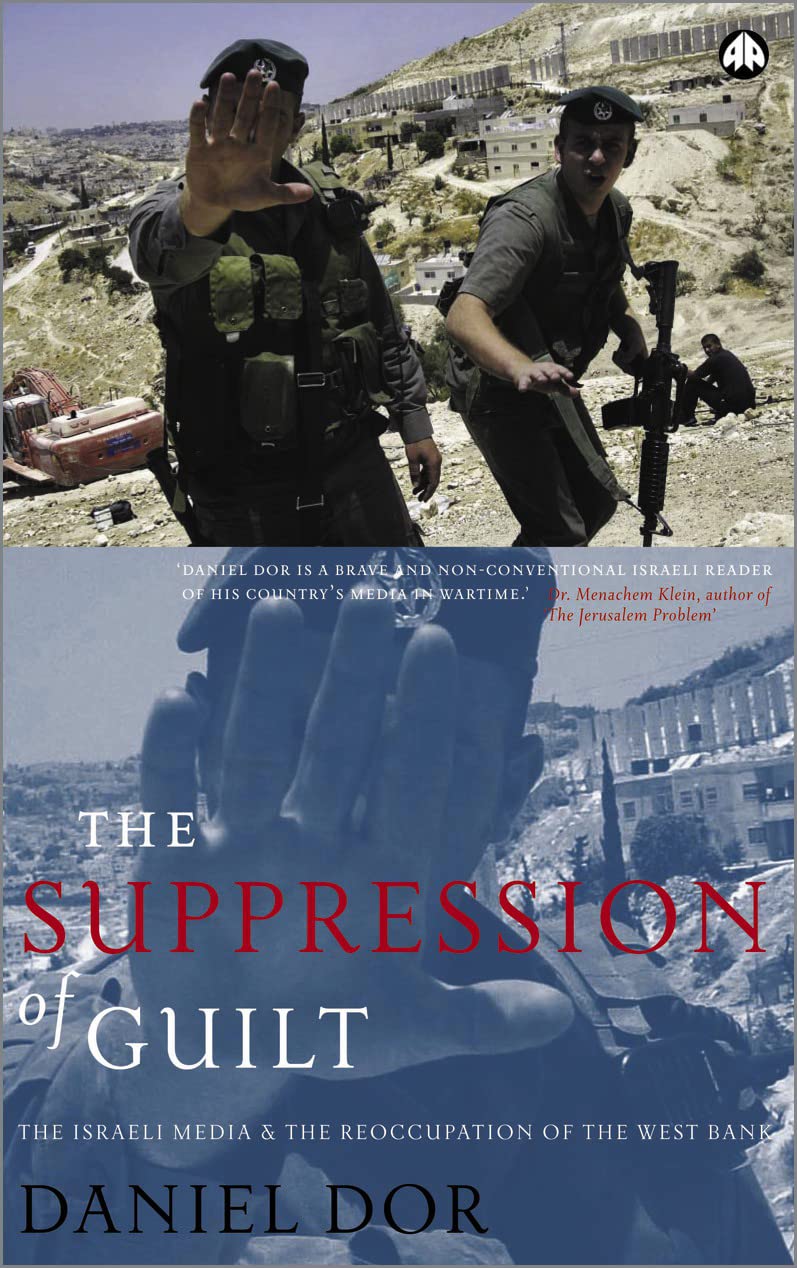Suppression of Guilt: The Israeli Media and the Reoccupation of the West Bank by Daniel Dor
Suppression of Guilt: The Israeli Media and the Reoccupation of the West Bank by Daniel Dor
26 in stock
Couldn't load pickup availability
Author(s): Daniel Dor
Pub: Pluto Press
Pack Qty: 0 (Paperback)
ISBN: 9780745322940 - New
Subjects: Arts & Photography, History & Criticism, Criticism, History, Middle East, Israel & Palestine, Reference, Writing
215mm x 133mm x 7mm
Publication: 20 July 2005Pages: 128
'Daniel Dor analyses how Israeli press and television cover the conflict with the Palestinians. He argues that investigative reporting and dissent are routinely marginalised. Although the media are certainly not uniform, he finds that the stories they tell reflect their emotional identification with their readers and viewers.' Philip Schlesinger, Professor of Film and Media Studies, University of Stirling 'Dor's book gives ample evidence of how the Israeli free press easily turned into an instrument of propaganda. ... Personally, the book helped me get over the frustration of seeing the reality I described totally marginalised in print.' Amira Hass, journalist for the Israeli daily Ha'aretz 'Daniel Dor is a brave and non-conventional Israeli reader of his country's media in wartime. He is neither misled by state propaganda nor affected psychologically by Palestinian terrorism. He critically reviews Israeli media reports, exploring the way that they often adopt a siege mentality that combines victimhood with a collective demonisation of the Palestinians.' Dr. Menachem Klein, author of The Jerusalem Problem: The Struggle for Permanent Status In the three years that have passed since Operation Defensive Shield - three years marked by denial, deceit, rage and resentment - one fact remains uncontroversial: never, until the operation, had there been such a wide breach between the Israeli collective consciousness and international public opinion. Israeli scholar Daniel Dor measures this gap and concludes that Israeli society has withdrawn into an unprecedented sense of isolation and victimization - largely because of the role played by the Israeli media. Different media outlets provided their readers and viewers with significantly different perspectives on the operation, but they all shared a certain emotional attitude, not vis-á-vis the operation itself, but in relations to the global discourse of blame against Is
View full details

